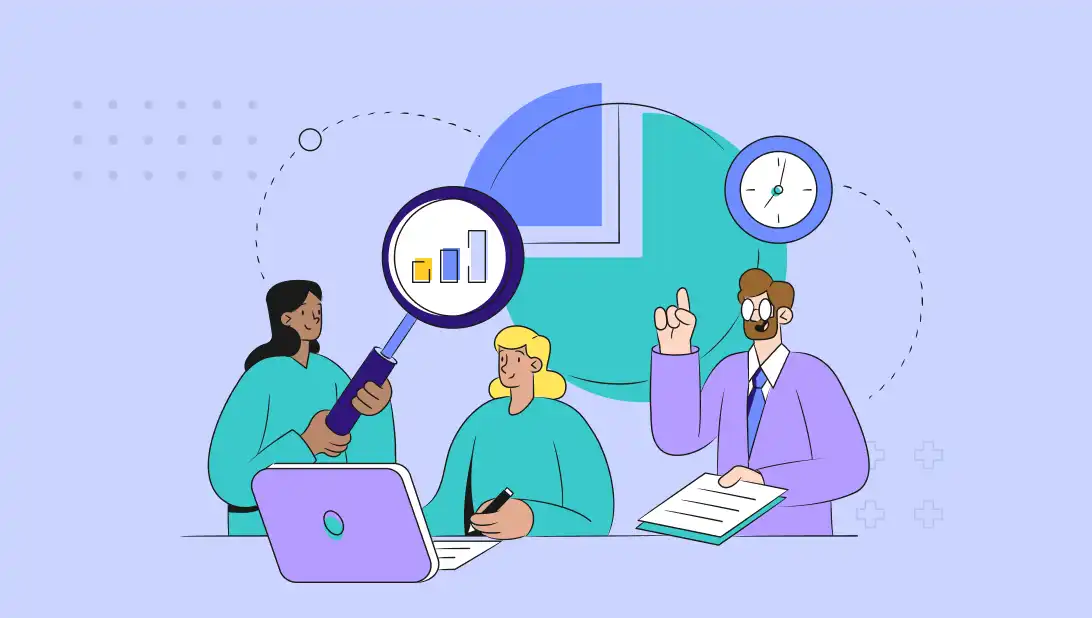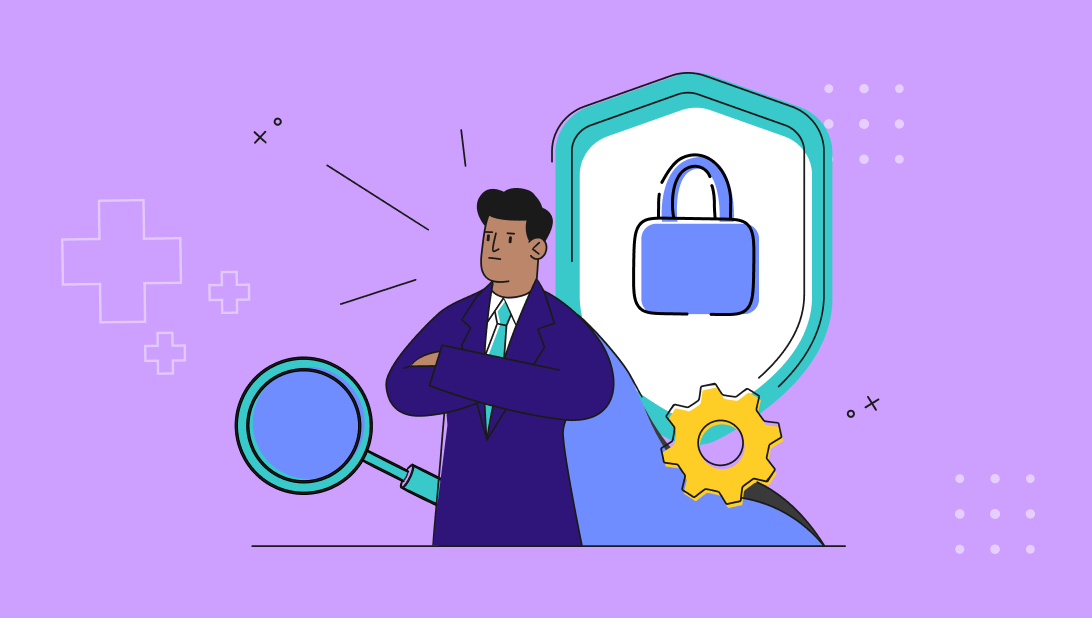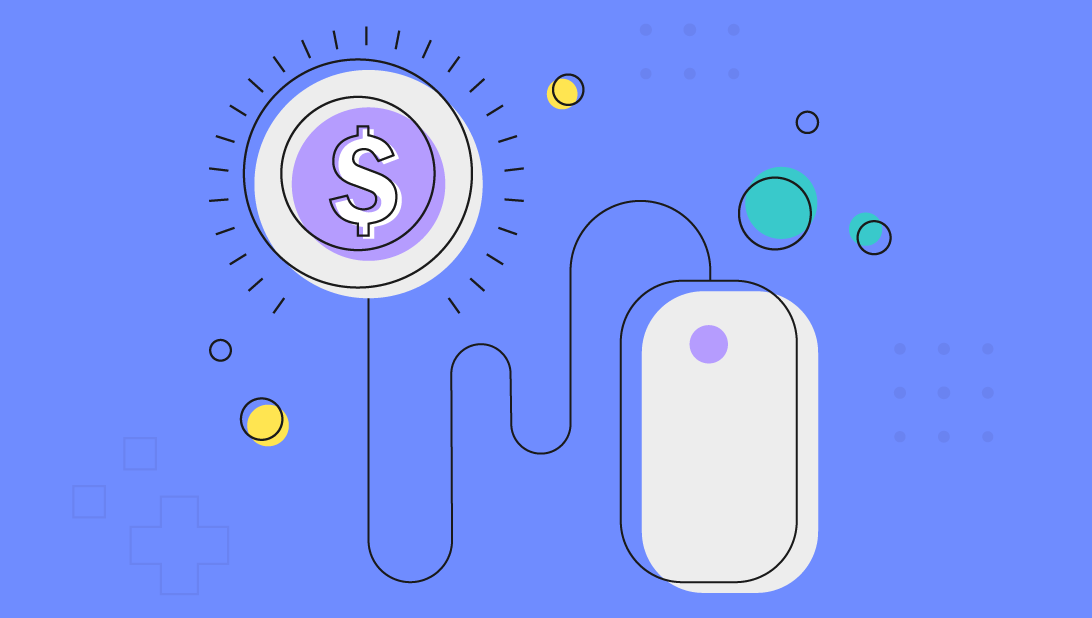



Artificial intelligence (AI) is all the rage right now. But how exactly can it help business-to-business (B2B) SaaS marketers — who are increasingly juggling multiple channels and limited resources — generate high-quality leads and drive conversions?
Advanced marketing platforms are redefining what's possible, from automating lead capture to personalizing every touchpoint in the buyer’s journey. This two-part series explores how AI and automation can supercharge your sales pipeline.
In this first installment, we explore how to capture, nurture, and convert leads faster and with higher precision using innovative features to support hyper-personalization, predictive lead scoring, B2B sales enablement, and more. Here's how AI marketing tools can help you scale your marketing operations and drive more revenue with less manual effort.
Casting a wider net without sacrificing lead quality is key to unlocking growth. AI marketing tools can help you automate lead capture with precision, speed, and scale.
AI-powered chatbots and virtual assistants enable marketers to implement conversational marketing at scale to capture leads around the clock. These tools go beyond answering questions to engage website visitors, qualify them using intelligent branching logic, and collect key data without human intervention.
AI chatbots and assistants can help prospects schedule demos, advance customers down the funnel with relevant resources, or route leads to the right sales rep to shorten the conversion journey.
Additionally, you can use AI-enhanced forms to take lead capture beyond static fields. For instance, progressive profiling helps you collect only the most relevant information at each stage of the buyer’s journey to reduce friction while enriching your lead database over time. AI can also dynamically adjust which questions appear based on user behavior or prior interactions to optimize completion rates.
You may also use AI marketing tools to analyze third-party intent signals from social media, review sites, and digital footprints to pinpoint buyers actively researching solutions like yours. Integrating the data into your marketing automation platform enables you to proactively engage with high-intent prospects with the right content at the right time.
B2B SaaS buyers expect experiences tailored to their specific challenges, goals, and customer lifecycle stages. Scaling this level of personalization, however, is impossible to do manually.
Fortunately, AI marketing tools can help you analyze customer and behavioral data to deliver dynamic content across channels. You can personalize website experiences, tailor product recommendations, or customize case study carousels based on page views, content downloads, and other metrics.
Meanwhile, you can implement hyper-personalization in email marketing to generate one-to-one email variations based on user behavior, past interactions, and firmographic data to increase open, boost click-through rates, and drive engagement.
Moreover, AI solutions don’t just personalize content. They also help you deliver content at the right time to support targeted, value-driven communication. This level of precision is particularly essential for account-based marketing (ABM), enabling brands to deliver tailored ads, emails, and web experiences based on account-level insights.
AI-powered analytics and automation mean you don’t need a massive content team to execute your hyper-personalization strategy. Machine learning capabilities can repurpose and remix existing content to create variations for different industries and personas, allowing you to deliver highly relevant experiences at every touchpoint.
Chasing the wrong leads can drain your team’s time, budget, and energy. But AI marketing tools can help. AI solutions with predictive lead scoring features analyze thousands of data points in real-time to identify prospects most likely to convert.
Predictive lead scoring uses machine learning to uncover patterns in historical data and identify behaviors that signal buying intent. The model learns from your customer relationship management (CRM) and marketing automation platform to continuously refine its accuracy.
Predictive models go beyond individual behaviors to factor in various indicators, such as firmographics, engagement levels, website behavior, email interactions, and third-party intent signals. AI tools that take this holistic approach provide a prioritized list of sales-ready prospects that align with your ideal customer profile.
The high-quality data insights also encourage sales and marketing alignment. Marketers know which leads to prioritize in nurture campaigns, and sales reps can identify who’s ready for conversations. The unified pipeline view and shared focus on high-impact opportunities is the foundation for a revenue-driven approach.
What's more, advanced platforms use predictive lead scoring features to trigger intelligent workflows, automatically routing leads to the right reps, recommending the best next steps, and generating service level agreements based on deal potential. These capabilities remove friction from the marketing-to-sales handoff to keep the pipeline flowing.
Turning interest into revenue requires marketing teams to provide sales with relevant, targeted content that can deliver a consistent, trust-generating customer experience.
AI marketing tools analyze a prospect's customer lifecycle stage, industry, past interactions, and company size to suggest the most relevant content. They support B2B sales enablement by helping reps access the right content and recommending appropriate next steps to engage prospects confidently and close deals faster.
Meanwhile, AI-powered automation tools can streamline follow-up tasks by sending personalized emails, scheduling meetings, and nudging prospects after periods of inactivity to keep deals alive.
You can harness AI marketing tools to create dynamic, adaptive sales playbooks, as well. These platforms provide reps with customized guidance based on deal stage, account behavior, and historical performance to support consistent processes and enable less-experienced team members to ramp up quickly.
By surfacing account intelligence, AI platforms help sales reps connect the dots. Understanding a prospect’s website activity and engagement history enables reps to enter every conversation well-prepared to deliver a seamless experience.
Transforming data into actionable insights is where AI marketing tools truly shine. They enable marketers to go beyond surface-level metrics to understand what drives conversions.
AI can enhance traditional dashboards with predictive analytics to achieve real-time pipeline visibility. The right tools help forecast deal velocity, identify bottlenecks, and estimate conversion probabilities across the pipeline to provide forward-looking insights.
AI marketing tools also support efficient A/B testing and experimentation. You can automate split tests at scale, dynamically adjusting subject lines, calls-to-action, layouts, and even audience segments based on real-time input to maximize long-term impact with minimal manual effort.
AI bolsters attribution modeling to gain insights into the complex B2B buyer journey. Advanced analytics features help identify combinations of channels and tactics that effectively influence pipeline movements and conversions, allowing you to confidently double down on what works.
Because these programs can learn over time, they can continuously refine models based on new data to improve recommendations, predictions, and performance. The more you use them, the more accurate they become, helping you stay on top of evolving marketing trends and customer demand.
AI marketing tools can capture leads, nurture them with hyper-personalization tactics, and perform predictive lead scoring to help accelerate your pipeline with unprecedented speed and scale. But AI is only as powerful as the strategy behind it — achieving long-term, sustainable outcomes requires teams to first build a strong foundation of aligned goals, clean data, integrated systems, and cross-functional collaboration.
At Spot On, we combine the latest marketing technologies with a holistic strategy to help B2B SaaS companies reach the right audience, grow their pipelines, and accelerate the sales cycle. Book a meeting to see how we can help you stay focused and drive growth.


Rebecca Graves co-founded Spot On in 2012. As a partner and leader of client services, she takes immense pride in being in charge of “client happiness.” The role allows her to wield her problem-solving skills while fostering big-picture perspectives and team building. Rebecca’s more than 35 years of experience have equipped her to translate strategic planning expertise for the advancement of tech companies transforming the healthcare, financial, and legal industries.
Get the latest and greatest posts sent straight to your inbox.


